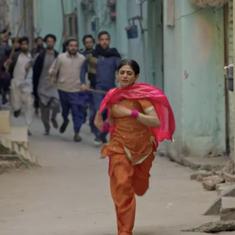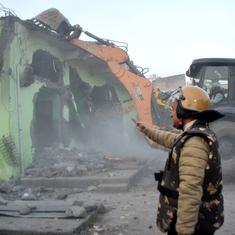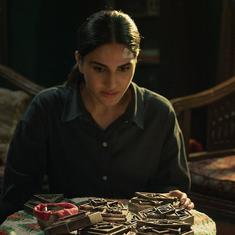All information sourced from publishers.
Becoming Earth: How Our Planet Came to Life, Ferris Jabr
The notion of a living world is one of humanity’s oldest beliefs. Though once scorned by many scientists, the concept of Earth as a vast interconnected living system has gained acceptance in recent decades. Life not only adapts to its surroundings – it also shapes them in dramatic and enduring ways. Over billions of years, life transformed a lump of orbiting rock into our cosmic oasis, breathing oxygen into the atmosphere, concocting the modern oceans, and turning rock into fertile soil. Life is intertwined with Earth’s capacity to regulate its climate and maintain balance.
Through compelling narrative, evocative descriptions and lucid explanations, Becoming Earth shows us how Earth became the world we’ve known, how it is rapidly becoming a very different world, and how we will determine what kind of Earth our descendants inherit for millennia to come.

Artists, Siblings, Visionaries: The Lives and Loves of Gwen and Augustus John, Judith Mackrell
In Artists, Siblings, Visionaries, biographer Judith Mackrell turns her attention to British brother and sister artists Gwen and Augustus John.
In many ways, they were polar opposites.
Augustus was the larger of the two; vivid, volatile and promiscuous, he was a hero among romantics and bohemians, celebrated as one of the great British talents of his generation.
As a woman, Gwen’s place in the art world was much smaller, and her private way of working and reserved nature meant it was only long after her death that her tremendous gifts were fully acknowledged. But her temperament was as turbulent as her brother’s. She formed passionate attachments to men and women, including a long affair with the sculptor Rodin.
And there were other ways in which the two Johns were remarkably alike, as Mackrell vividly reveals. The result is a powerful portrait of two prodigiously talented artists and visionaries, whose experiments with form and colour created some of the most memorable work of the early 20th century.

Cultish: The Language of Fanaticism, Amanda Montell
What makes “cults” so intriguing and frightening? What makes them powerful? The reason why so many of us binge-watch Manson documentaries by the dozen and fall down rabbit holes researching suburban moms gone QAnon is because we’re looking for a satisfying explanation for what causes people to join – and more importantly, stay in – extreme groups. We secretly want to know: could it happen to me? Amanda Montell’s argument is that, on some level, it already has …
Our culture tends to provide pretty flimsy answers to questions of cult influence, mostly having to do with vague talk of “brainwashing.” But the true answer has nothing to do with freaky mind-control wizardry or Kool-Aid. In Cultish, Montell argues that the key to manufacturing intense ideology, community, and us/them attitudes all comes down to language. In both positive ways and shadowy ones, cultish language is something we hear – and are influenced by – every single day.

Fatherhood: A History of Love and Power, Augustine Sedgewick
What is fatherhood, and where did it come from? How has the role of men in families and society changed across thousands of years? What does the history of fatherhood reveal about what it means to be a dad today?
From the anxious philosophers of ancient Athens and Henry VIII’s obsessive quest for an heir, to Charles Darwin’s theories of human origins, Bob Dylan’s take down of “The Man”, and beyond, Sedgewick shows how successive generations of men have shaped our understanding of what it means to be and have a father, and in turn our ideas of who we are, where we come from and what we are capable of.

Sceptred Isle: A New History of the Fourteenth Century, Helen Carr
The death of Edward I in 1307 marked the beginning of a period of intense turmoil and change in England. The 14th century ushered in the beginning of the bloody Hundred Years’ War with France, an epic conflict with Scotland that would last into the 16th century, famine in Northern Europe and the largest human catastrophe in known history, the Black Death.
Through the epic drama of regicide, war, the prolonged spectre of bubonic plague, religious antagonism, revolt and the end of a royal dynasty, this book tells the story of the 14th century via the lives of Edward II, Edward III and Richard II – three very different monarchs, each with their own egos and ambitions, each with their own ideas about England and what it meant to wield power.
Alongside the lives of the last Plantagenets, it also uncovers lesser-known voices and untold stories to give a new portrait of a fractured monarchy, the birth of the struggle between Europeanism and nationalism, social rebellion and a global pandemic.
Sceptred Isle is a narrative account of a century of revolution, shifting power and great change – social, political and cultural – shedding new light on a pivotal period of English history and the people who lived it.

Murderland: Crime and Bloodlust in the Time of Serial Killers, Caroline Fraser
Author Caroline Fraser grew up in the shadow of Ted Bundy, the most notorious serial murderer of women in American history, surrounded by his hunting grounds and mountain body dumps, in the brooding landscape of the Pacific Northwest. But in the 1970s and 80s, Bundy was just one perpetrator amid an uncanny explosion of serial rape and murder across the region. Why so many? Why so weirdly and nightmarishly gruesome? Why the senseless rise and then sudden fall of an epidemic of serial killing?
As Murderland indelibly maps the lives and careers of Bundy and his infamous peers in mayhem – the Green River Killer, the I-5 Killer, the Night Stalker, the Hillside Strangler, even Charles Manson – Fraser's Northwestern death trip begins to uncover a deeper mystery and an overlapping pattern of environmental destruction. At ground zero in Ted Bundy's Tacoma, stood one of the most poisonous lead, copper, and arsenic smelters in the world, but it was only one among many that dotted the area.
As Fraser’s investigation inexorably proceeds, evidence mounts that the plumes of western smelters not only sickened and blighted millions of lives but also warped young minds, spawning a generation of serial killers.











